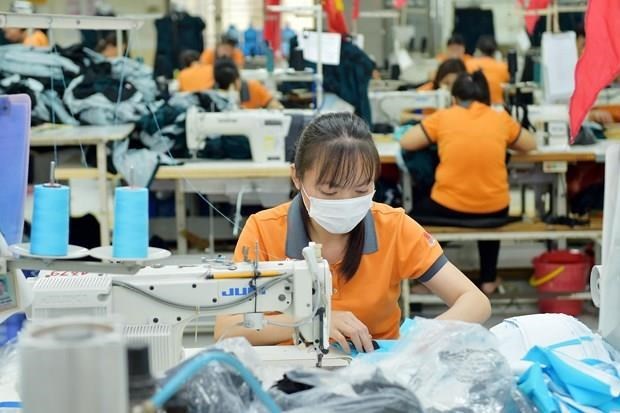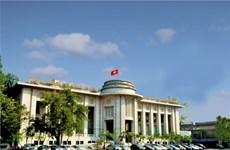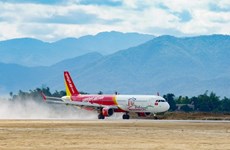EVFTA: Challenges from competition for labour resources
Hanoi (VNA) - The European Union (EU) – Vietnam Free Trade Agreement (EVFTA) has brought great opportunities to enterprises, but businesses need to have sufficiently strong workforce to be able to fully tap these opportunities, according to experts.
At a workshop jointly held by the Vietnam Chamber of Commerce and Industry (VCCI) and ManpowerGroup Vietnam on September 17, economic experts said that the EVFTA will pose pressure of labour competition on enterprises because they have to seek high-quality human resources to meet increasingly stringent requirements of the quality of goods and services.
Competition for human resources
The EVFTA is a new generation FTA with commitments on labour and environmental standards.
Vietnam and the EU have agreed on an action plan with their commitments reaffirming the respect to and effective promotion of the four basic labour standards in line with the International Labour Organisation’s 1998 Declaration on Fundamental Principles and Rights at Work: freedom of association and the effective recognition of the right to collective bargaining, elimination of forced or compulsory labour, abolition of child labour, and elimination of discrimination in respect of employment and occupation.
According to VCCI Chairman Vu Tien Loc, new generation FTAs are geared towards more humane and sustainable trade. Although there are no specific labour standards, FTAs contain labour-related provisions on the basis of the ILO’s principles.
By cutting export tariff on goods trade between Vietnam and the EU by up to 99 percent, the EVFTA will bring more opportunities to Vietnamese companies to export to European markets. This is hoped to create more jobs and improve incomes for Vietnamese labourers, especially those in garment and textile, footwear and aquaculture industries.
Notably, the EVFTA will also pose challenges and competition for high-quality human resources to Vietnamese enterprises in meeting increasingly stringent requirements of the European market on the quality of goods and services.
Through the EVFTA, Vietnam has an opportunity to develop a sustainable and harmonious labour market, bringing benefits to both labourers and businesses. However, the trade pact also brings about challenges to businesses because they have no choice but to make changes to fulfill their commitments.
Experts said to fully tap opportunities from the FTA, Vietnamese firms need to make adjustments to their strategies of human resources development.
 Enterprises will face competition for human resources in implementing EVFTA (Photo: VietnamPlus).
Enterprises will face competition for human resources in implementing EVFTA (Photo: VietnamPlus).
Adjusting strategies of human resources development
The Vietnamese Government is considering revising policies and laws on labour and labour practices at the enterprises to conform with Vietnam's commitments in new generation FTAs.
Experts said that businesses need to have sufficiently strong labour resources to take full advantage of opportunities brought about by the EVFTA, adding that they should also adjust their human resources development strategies.
Loc said the quality of the human resources is a real challenge for Vietnam in its international integration.
In a survey of provincial competitive index conducted by the VCCI, FDI enterprises said that they have easy access to unskilled labourers but meet difficulties in looking for skilled ones such as technicians, and supervisors and managers. Up to 50 percent of surveyed businesses said that it is difficult to recruit high-quality labourers, and 85 percent said they find it difficult to recruit senior-level staff.
Simon Matthews, General Director of ManpowerGroup Vietnam, stressed that looking for and developing talents should be one of the top priorities of businesses in Vietnam, especially in the context of the Fourth Industrial Revolution. He added that to get successes, businesses need to map out appropriate strategies on talents.
After nine years of negotiation, the EVFTA was officially inked in Hanoi in June. Once it takes effect, over 99 percent of tariff on goods from both sides will be lifted, thus helping improve the competitiveness as well as market share of Vietnamese products in the EU market.
Vietnam is the EU’s second largest trade partner in ASEAN with a trade value of nearly 50 billion EUR (about 56 billion USD)./.













